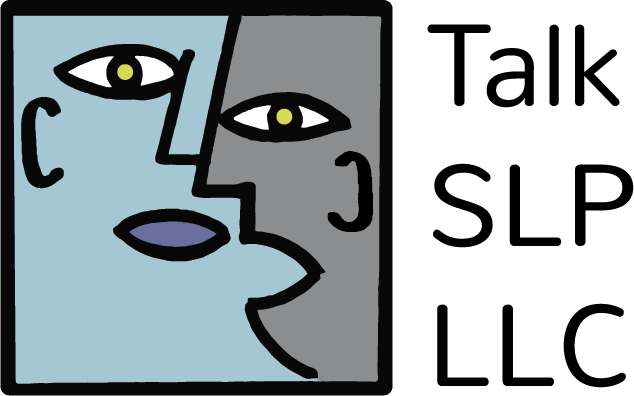Social Communication/Social Language Disorders
Most people have an innate sense of when and how to make what the words we say reflect what we are feeling inside and also fit into the environment outside. Spoken words can sound happy, respectful, humorous, confidential, sympathetic, hurt, flippant, angry, sad, dissatisfied, mystified, affectionate, incredulous, amused, skeptical, or romantic. Our social communication skills allow us to “just know” how to adjust the intensity of what we say and how we say it to match our surroundings. These are the skills that come into play when we are making a soft comment to our date during a movie or having to raise our voices to just the right level to be heard above the background noise on a plane or in a busy classroom.
Healthy social communication also involves body language and behavior, such as eye contact and facial expressions. Social communication also requires a grasp of the semantics and pragmatics of the language (or languages) we speak and the social situations we encounter. The particular adjustments we make may happen at the subconscious level and are culturally and linguistically determined. For example, verbal and nonverbal behavior that is acceptable in a certain situation in one culture or language may be unacceptable in another.
An individual’s social communication abilities can be negatively impacted by psychological or emotional disorders. Hearing loss may also negatively affect successful social communication. In the case of autism spectrum disorder, social communication problems are a defining feature.
Social communication includes interactions with a variety of communication partners, including family, caregivers, childcare providers, educators, and peers. According to the American Speech-Language-Hearing Association (ASHA), social communication disorders can lead to problems with social interaction, social cognition, and pragmatics. A social communication disorder can exist on its own, or it may be related to other conditions, such as:
- autism spectrum disorder (ASD)
- specific language impairment (SLI)
- learning disabilities (LD)
- language learning disabilities (LLD)
- intellectual disabilities (ID)
- developmental disabilities (DD)
- attention deficit hyperactivity disorder (ADHD)
- traumatic brain injury (TBI)
The TALK Difference
“Laura has been helping my kids in so many levels. They really enjoy their time with her. She makes them feel very comfortable and she is very kind. My kids have not only improved their speech, but also their confidence and social skills. Laura helps them not only with their speech but also psychologically. She is great!”
Goals of therapy:
- Develop the social skills of listening with empathy, sensitivity, and understanding of another’s point of view.
- Discuss interpretation and explanation of jokes, idioms, sarcastic comments, and absurdities in pictures, stories, and social situations.
- Create stories specific to social situations that define why a situation occurs.
- Describe and explain the reactions and feelings of others in a given situation, talk about what one is expected to do or say, and apply strategies to remember what to do and how to interpret a situation.
- Learn and practice strategies of scripting social stories, situation analysis, and role-playing to think about and interpret social experiences for improved personal interaction.
Help is available!
Laura Smith, licensed speech-language pathologist and certified orofacial myologist, is specially trained to assist children and adults in overcoming their communication challenges. Her holistic approach takes into account the person as well as the problem.
Telepractice appointments are available, where clients can receive consultation and therapy services using online tools. In-person appointments upon request.
Contact us for more information or to make an appointment.
